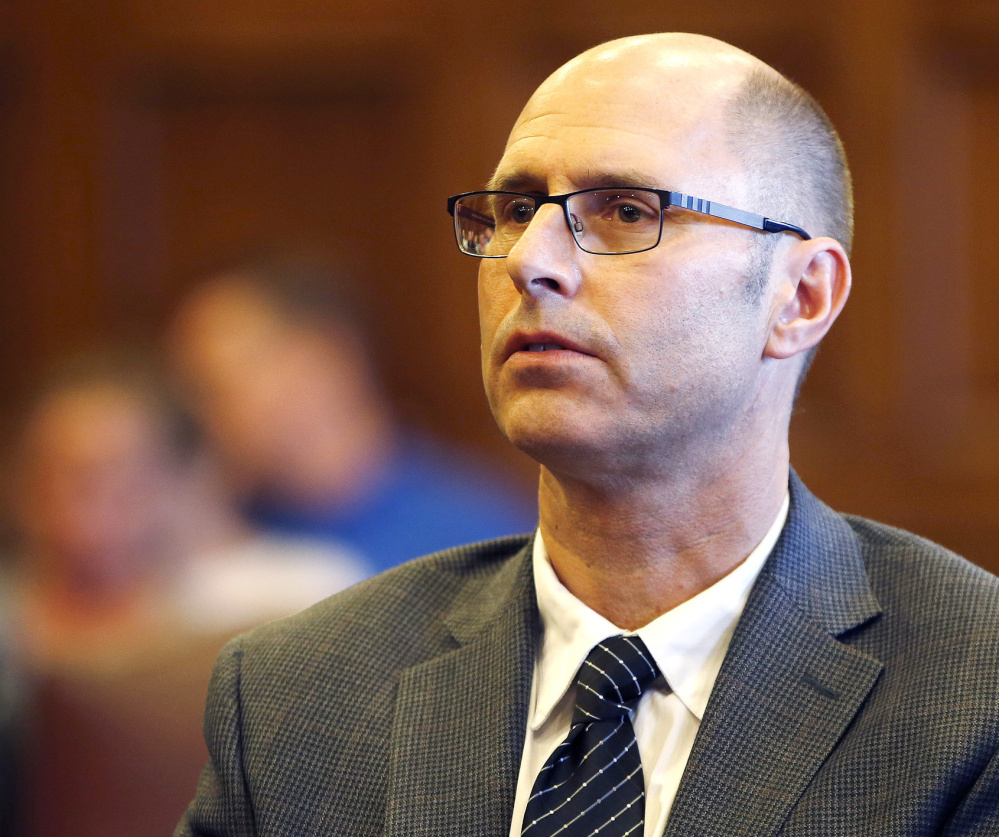An allegedly vague fire safety code was cited among other factors in an appeal of the conviction of a Portland landlord who owned a building where six people died in a 2014 fire.
Gregory Nisbet was acquitted in 2016 on six counts of manslaughter in the fire, but convicted of a misdemeanor violation of the fire codes because third-floor bedrooms lacked a secondary exit. He was sentenced to 90 days in jail, believed to be the first time a Maine landlord was sentenced to jail time for a safety code violation.
The fire on Noyes Street, near the University of Southern Maine, was the deadliest in Portland in four decades. The fire began when someone improperly discarded smoking materials on the front porch on Nov. 1, 2014. Although some tenants and guests escaped the blaze, those on the upper floors were trapped and couldn’t get out through the thick smoke, flames and heat.
Last June, a judge in Cumberland County Superior Court rejected Nisbet’s bid for a new trial, and the landlord launched an appeal to the Maine Supreme Judicial Court. His original lawyers dropped out in October, saying they hadn’t been paid, and were replaced by Luke Rioux.
The brief filed Friday argues that the state’s fire code is unconstitutionally vague because “an ordinary person is not put on notice that his or her actions are not legal.” Enforcement of the code, Rioux said in the appeal, is inconsistent, a violation of due process requirements.
He also said prosecutors did not disclose before the trial that they would introduce a 2013 memo from the State Fire Marshal’s Office that clarified the requirements for windows to be considered a secondary means of escape from a room. That action violates rules requiring evidence to be turned over to a defendant and his lawyers, Rioux said.
The trial judge turned down that argument when lawyers sought a new trial after Nisbet’s conviction, saying earlier disclosure wouldn’t have changed the verdict.
But Rioux disagreed.
“Had the defense had the memorandum, it would have changed the trajectory of the trial dramatically,” he said in the brief, saying Nisbet’s lawyers would have had more material for questioning state fire officials on cross-examination and could have argued that Nisbet was not sure that the windows did not meet the rules.
Even with the clarifying memo, the standards aren’t clear and the windows in the Noyes Street building “were by no means not in compliance beyond a reasonable doubt,” Rioux said.
The 32-page brief also argues that some of the fire code standards applied to the building were meant for structures built after 1976 and the Noyes Street house was constructed around 1920.
Prosecutors will also need to file their brief in the appeal, and the Maine Supreme Judicial Court will likely set a date in late winter or spring for oral arguments. Decisions are usually issued several months after the oral arguments.
Nisbet has not been jailed while he has appealed the verdict.
Edward D. Murphy can be contacted at 791-6465 or at:
emurphy@pressherald.com
Send questions/comments to the editors.




Comments are no longer available on this story